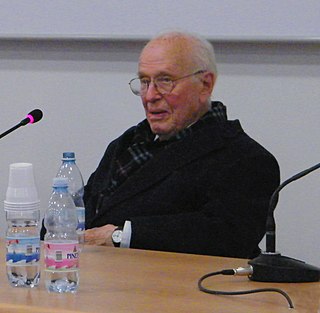A Quote by John Horton Conway
If experimenters have free will, then so do elementary particles.
Related Quotes
The human race will disappear. Other races will appear and disappear in turn. The sky will become icy and void, pierced by the feeble light of half-dead stars. Which will also disappear. Everything will disappear. And what human beings do is just as free of sense as the free motion of elementary particles. Good, evil, morality, feelings? Pure 'Victorian fictions'. Only egotism exists.
The mathematics clearly called for a set of underlying elementary objects-at that time we needed three types of them-elementary objects that could be combined three at a time in different ways to make all the heavy particles we knew. ... I needed a name for them and called them quarks, after the taunting cry of the gulls, "Three quarks for Muster mark," from Finnegan's Wake by the Irish writer James Joyce.
Now the smallest Particles of Matter may cohere by the strongest Attractions, and compose bigger Particles of weaker Virture.... There are therefore Agents in Nature able to make the Particles of Bodies stick together by very strong Attraction. And it is the Business of experimental Philosophy to find them out.





































